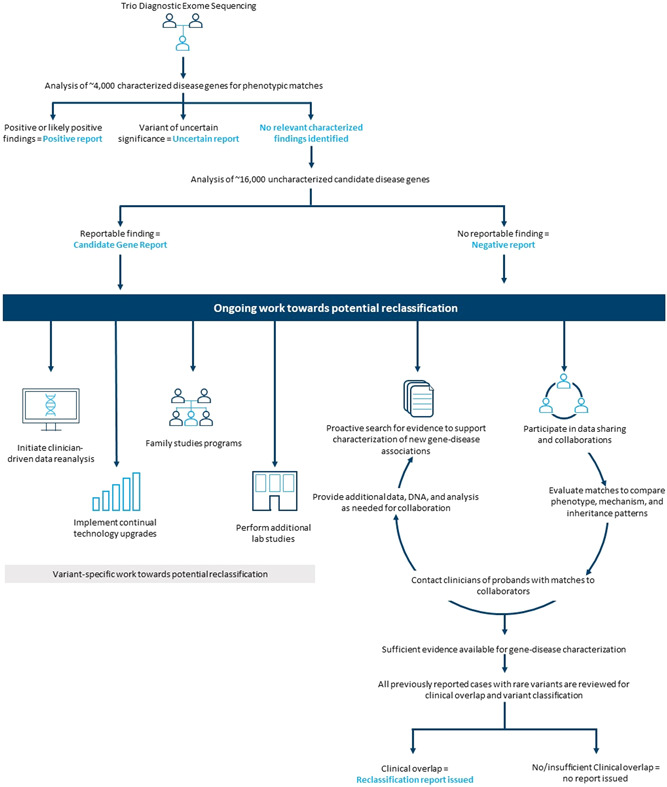Figure 1.

Uncharacterized gene reporting and reclassification workflow Figure 1: Up until 2020, uncharacterized gene analysis was performed for informative trios with an uncertain or negative result following characterized gene analysis. Currently, uncharacterized genes are analyzed for negative cases or for probands where the identified characterized gene finding only accounts for part their phenotype (“partial overlap”). Genes are continually evaluated based on the latest literature to determine whether the published evidence is sufficient to characterize the gene–disease association. Once characterized, all previously reported diagnostic exome sequencing (DES) cases with rare variants in a gene are assessed for clinical overlap and proactive reclassification reports are issued to appropriate cases. Our laboratory has several workflows addressing uncertain results for reclassification. New gene characterizations result in our highest rate of reclassifications. Participation in data‐sharing initiatives include GeneMatcher, ClinVar, the Undiagnosed Disease Network, and collaborations established directly with investigators. Only gene and variant information are shared on these platforms with follow‐up clinical details provided on a case‐by‐case basis. Ordering clinicians are contacted for a promising lead and connected to collaborators for additional data sharing and patient consent to participate in publications or additional studies. Other efforts for reclassification include performing reanalysis by clinician request and implementing bioinformatic pipeline upgrades and other technology upgrades, both of which are largely time dependent. Family studies and additional laboratory studies (i.e., RNA analysis and structural modeling) are variant‐dependent and, to date, not widely available for most alterations
